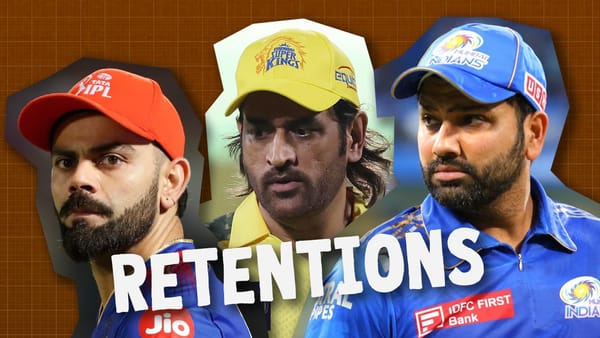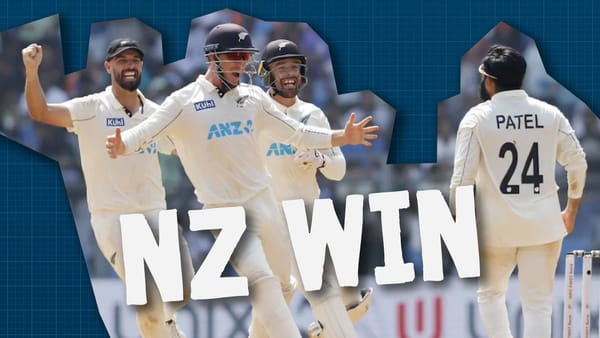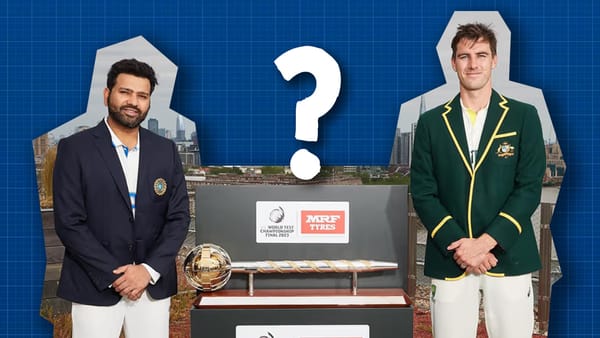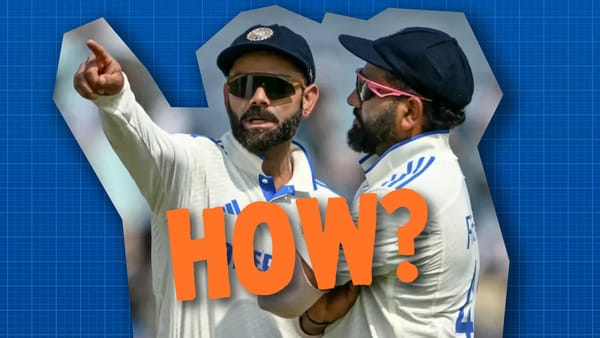Sport & Order
You know you have watched too much sport when you start to look for the sport in true crime trials.
Streaming platforms seem to love two types of documentaries right now. Behind the scenes sports series, and true crimes with a lengthy case. I consume about as many of the first as I can; the second lot is more my wife's thing.
Recently she was watching The Staircase, a show about a man who may or may not have killed two women. Now I only dipped in towards the end, so I'm no expert on the case, but I saw heaps of the trial. And while these aren't my kind of shows, I watched making a murderer, and also ESPN's OJ series. And thinking back to those three, I was shocked how similar the trials are to sport.

Conditions
Where a case is held really changes what the result might be, partly because of the laws or regulations where you are, but also the jury. Sure there is selection, but if the entire pool is full of homophobes, and they caught your client cheating on his wife with his brother in law while they are both dressed as clowns, then you're in trouble.
And while this is not always the case, as often both lawyers are from the area they are practising. In some of these larger cases, big names are dropped in from elsewhere.
If sport has taught us anything, it's home conditions usually help the local side. Knowing the judge and having a better idea of regional laws and regulations is an advantage. However, the lack of abuse from the outer is certainly one benefit of contempt of court.
In sport when we say you could hear a pin drop, it means something else.
Umpiring
You have the judge as referee or umpire quite obviously. We like to view judges as the fairest and balanced people in our society. But think of the last time you watched your team play sport, we suddenly see the most simple clear cut decision as a grave injustice. We see umpires as biased because we're biased.
If your sister is on trial for boiling all the local hamsters, and the judge sides with the prosecution, you'll believe they're against her. If you survey fans after sporting events and ask them they believe the free kick or penalty count went, they almost always assume their team has had the worse run.
But judges are actual human beings. Some were prosecutors, others worked for defence, that has to affect how they see things. And when you study individual umpires in cricket, you see that some are "outers" , and some are "not outers". And none of that includes the personal history the judge may have with the defendant or lawyers in the case.
My guess is that attorneys, like most athletes and fans, overestimate how often umpires are biased against them. That's not to say it doesn't matter. But in real life I've had too many people in sport complain about umpiring. And these shows seem to have a huge amount of lawyers complaining about decisions that would probably be better spent making their cases stronger.
Remember, the umpire is always right, even in the many occurrences when they are not.
The Opposition
You might have a better legal line up than lawyers you're up against, but they're still trying to win. That means they will push the limits of the spirit of the law. Also, in most top-level professional sport you have some idea of how the opposition will play, that isn't always the case in lower levels. Chances are you'll have to work out their strengths and weakenesses by chatting to people, or as you go up against them.
And in a big trial like the sorts they make series about, usually, it's a team of lawyers. That might mean that it's about matchups. A superb legal team needs a variety of people, those good at setting up the case, a gun researcher, someone in the courtroom that can keep all the facts in their head, a brutal cross-examiner and a cracking orator. Now if the other team has the better orator and someone superior at setting up the case, even if you have more overall talent, you can struggle. You see this in knock out matches and finals all the time. Often the match up wins.
As you often hear around the courthouse, "We were the best team on paper."
Training Track
In these series the research side of things is cut as it isn't sexy TV. (Although, wasn't every John Grisham film always won by an attorney at midnight trawling through documents?). Preparation in these kinds of trials is so important. But while in the long one good pre-trial methods win you more than you lose, the actual trials are wildly unpredictable.
Sometimes it's just that you see your best work isn't winning over the jury, or the judge keeps you on a leash. There is often surprise evidence, a witness recants or breaks on the stand. So all that preparation and effort just doesn't work this time. It doesn't matter how good you're going in your conference rooms if you can't convert in the courtroom.
Also, this job is hard; it's why most of us aren't lawyers. We sit back on TV and have things presented clearly to us by film crews, and think, oh, that's a big mistake. But we're not there, in the heat of it, with cameras, family and friends down our necks trying to handle it in real-time. Skill and mental errors happen to the greatest athletes in the world. We see Tom Brady throw to the wrong receiver and we grimace, and think, why didn't he hit the tight end. But we don't have the ten-foot wall of anger running at us, or the split second to make the right call or suffer career ending injuries. And no one monday morning quarterbacks like a true crime junkie.
But when it comes to doing the hard yards and going that extra inch, the kind of attorneys I respect are the first one into the archive room and the last ones out.
Rematch
There's always a moment when a lawyer loses one of these trials, and they say they'll win the retrial. I suppose this is the sign of a good litigator; incredible self-confidence and the ability to bounce back from the inevitable losses. But one thing they never think about is that their opposition will also have a rematch, both teams know what the others will do, and will prepare accordingly. Losers aren't the only ones who learn. If this was how things worked, then teams that lost in sport would beat the team they went up against more the next time.
They don't, because usually the better team wins.
The Result
The better team doesn't always win though. In cases or sport you either win or you lose. That's different to most parts of life. So we look at the result as the only thing that matters. But the better legal team could lose, because they just had a weaker case. Or, being that juries or judges consist of human beings making often subjective calls, they could just get the result wrong.
The thing is, in most walks of life, being second is fine. Being Pepsi is ok, losing to facebook doesn't kill twitter, and Limp Bizkit still made a lot of money despite objectively making horrible music.
But that's not how sports go, one team wins, and everyone else loses. And when you are talking about your client going away for life in prison, the stakes are almost as high.
The result isn't always the best indicator. In sport sometimes both teams play really well, sometimes they both play poor, and it's even possible for one team to play better than their opposition while still losing. But whether it's your team's crucial game, or some seven part infanticide docuseries, at the end, the only thing that matters is the result to most of us.
But for those legal athletes, it's different for them it's about the process, and they'll continue to take it one case at a time.
This week on Red Inker we talked to Tim Cutler from Emerging cricket about how and why T20 leagues are run so bad. It’s a cross over episode, which is apt, as Detective Munch was the king of cross overs, and I adapted Law & Orders logo for this emailer.





